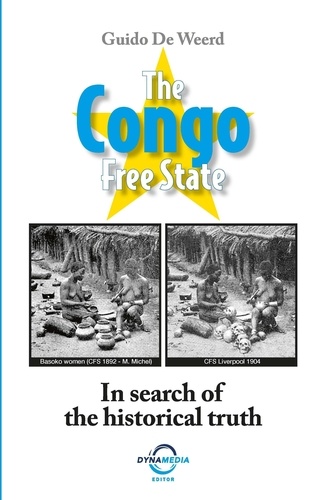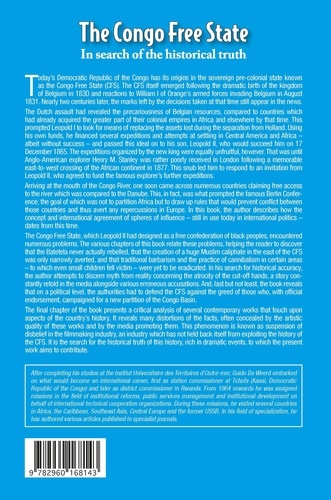En cours de chargement...
Today's Democratic Republic of the Congo has its origins in the sovereign pre-colonial state known as the Congo Free State (CFS). The CFS itself emerged following the dramatic birth of the kingdom of Belgium in 1830 and reactions to William I of Orange's armed forces invading Belgium in August 1831. Nearly two centuries later, the marks left by the decisions taken at that time still appear in the news.
The Dutch assault had revealed the precariousness of Belgian resources, compared to countries which had already acquired the greater part of their colonial empires in Africa and elsewhere by that time. This prompted Leopold I to look for means of replacing the assets lost during the separation from Holland. Using his own funds, he financed several expeditions and attempts at settling in Central America and Africa - albeit without success - and passed this ideal on to his son, Leopold II, who would succeed him on 17 December 1865.
The expeditions organized by the new king were equally unfruitful, however. That was until Anglo-American explorer Henry M. Stanley was rather poorly received in London following a memorable east-to-west crossing of the African continent in 1877. This snub led him to respond to an invitation from Leopold II, who agreed to fund the famous explorer's further expeditions. Arriving at the mouth of the Congo River, one soon came across numerous countries claiming free access to the river which was compared to the Danube.
This, in fact, was what prompted the famous Berlin Conference, the goal of which was not to partition Africa but to draw up rules that would prevent conflict between those countries and thus avert any repercussions in Europe. In this book, the author describes how the concept and international agreement of spheres of influence - still in use today in international politics - dates from this time. The Congo Free State, which Leopold II had designed as a free confederation of black peoples, encountered numerous problems.
The various chapters of this book relate these problems, helping the reader to discover that the Batetela never actually rebelled, that the creation of a huge Muslim caliphate in the east of the CFS was only narrowly averted, and that traditional barbarism and the practice of cannibalism in certain areas - to which even small children fell victim - were yet to be eradicated. In his search for historical accuracy, the author attempts to discern myth from reality concerning the atrocity of the cut-off hands, a story constantly retold in the media alongside various erroneous accusations.And, last but not least, the book reveals that on a political level, the authorities had to defend the CFS against the greed of those who, with official endorsement, campaigned for a new partition of the Congo Basin.
The final chapter of the book presents a critical analysis of several contemporary works that touch upon aspects of the country's history. It reveals many distortions of the facts, often concealed by the artistic quality of these works and by the media promoting them. This phenomenon is known as suspension of disbelief in the filmmaking industry, an industry which has not held back itself from exploiting the history of the CFS.
It is the search for the historical truth of this history, rich in dramatic events, to which the present work aims to contribute.



